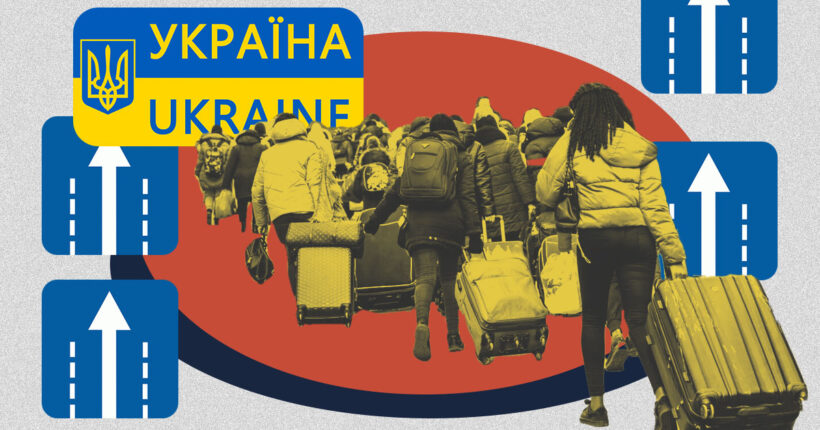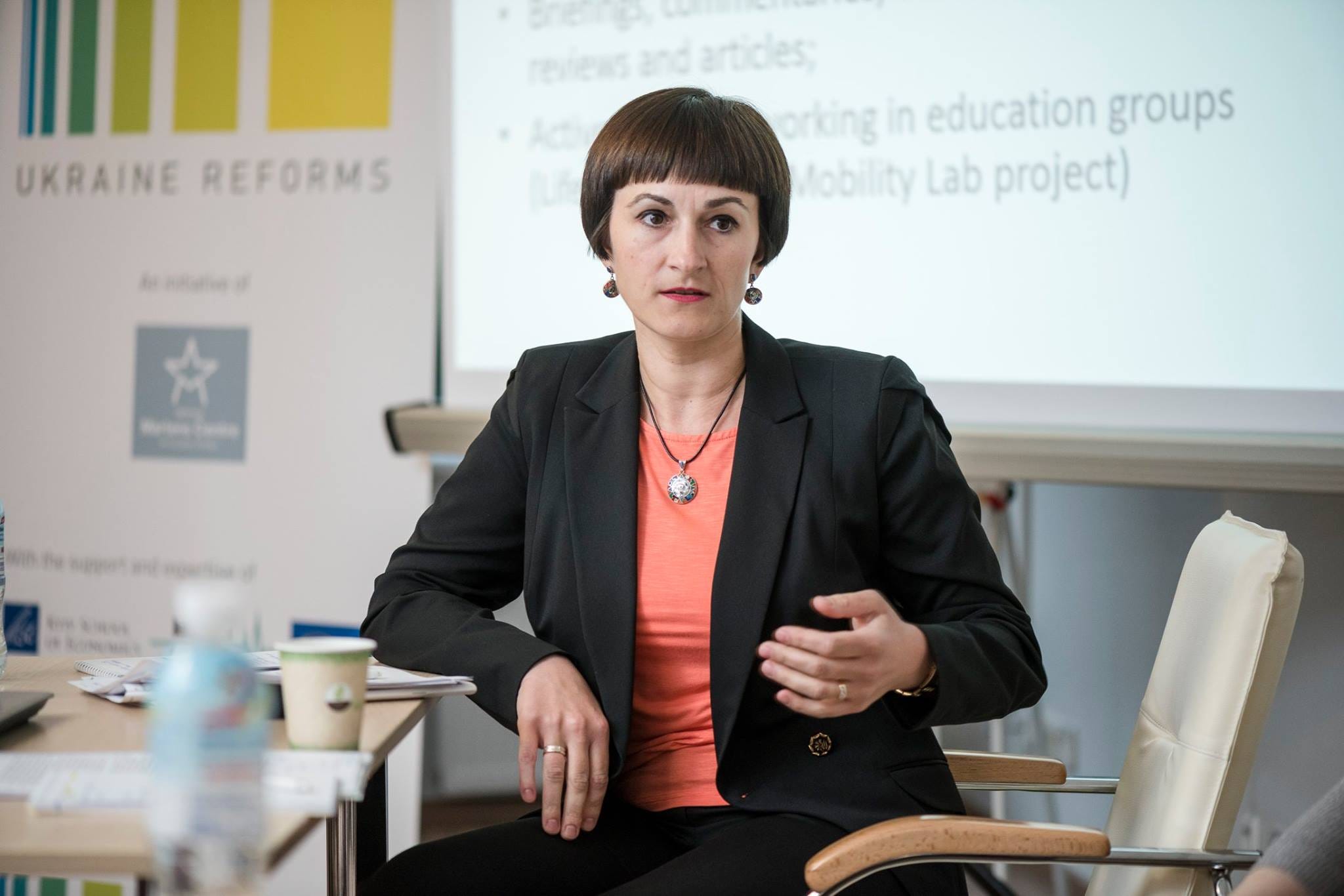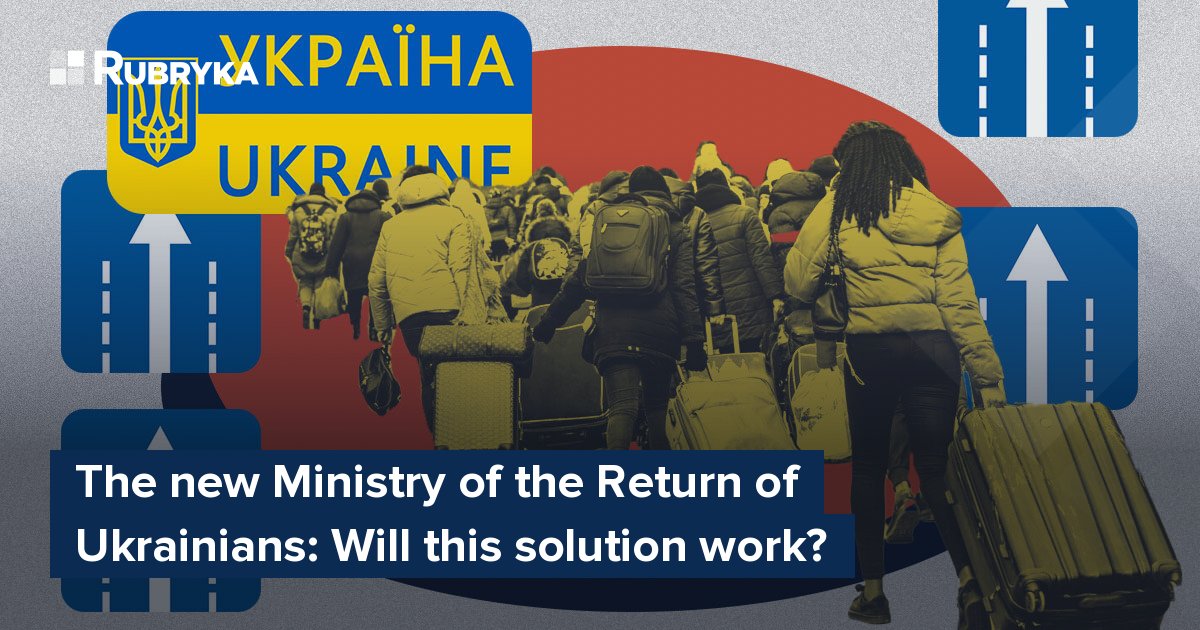
What is the problem?
Ukrainian President Volodymyr Zelensky has stated that the Ministry of Foreign Affairs does not have the capacity to prevent Ukrainians who have left from staying abroad or to bring them back to their homeland.
"This is an incredibly challenging mission for any ministry—not just because of the people involved, but because of the institutional complexity of the process. No one has ever faced the task of returning 7.5 million people. We must bring back adults, children, and students to Ukraine voluntarily, creating the conditions that encourage them to return," the president explained.

President of Ukraine Volodymyr Zelensky. Photo: RBC-Ukraine
What is the solution?
On August 19, 2024, President Volodymyr Zelensky announced the creation of the Ministry of Unity, an institution aimed at uniting Ukrainians abroad and helping to counter Russian narratives. According to Zelensky, the new ministry is expected to be established by this fall.
Later, during government personnel changes, Davyd Arakhamia, head of the "Servant of the People" faction, announced that parliament is already working on the creation of the Ministry of Return of Ukrainians. Prime Minister Denys Shmyhal also discussed this initiative during a press conference.
"The idea behind this ministry is to focus special attention on the 7.5 million Ukrainians currently outside our country. We are defining our state's strategy for bringing them back," Shmyhal said.
He explained that this strategy is currently divided among several ministries, including the Ministries of Economy, Reintegration, Social Policy, and Foreign Affairs, making it fragmented and not a clear priority. The government now aims to prioritize the return of citizens not just on paper, but in practice. To achieve this, a dedicated team will be assembled to work on this strategy daily.
"In order for Ukrainians to return, they need to be motivated to come back from where they are now. We already understand that not all Ukrainians will return. However, those abroad remain our people—they support our state through their contributions, donations, protests, opinions, and influence," prime minister added.

Prime Minister of Ukraine Denys Shmyhal. Photo: Government portal
Rubryka spoke with Olрa Kupets, Vice-Rector of the Kyiv School of Economics, candidate of economic sciences, and associate professor, as well as Ivan Valiushko, an expert from the National Institute of Strategic Studies to explain whether creating a new ministry is truly necessary for the return of Ukrainians.
Will this solution work?
Currently, little is known about the new ministry and its functions. It is expected to be established this fall under the working title "Ministry of Return of Ukrainians," with the main goal of facilitating the return of Ukrainians from abroad. However, specific details about how this will be achieved have not yet been revealed.
"We have to understand that no one will forcibly return Ukrainians. The ministry won't be individually inviting people back or talking to each person. We're talking about creating a system of incentives within Ukraine that encourages people to return," explains Olha Kupets.
She adds that a strong sense of longing for Ukraine is one of the key reasons why many choose to return, regardless of economic, political, or security challenges—a finding supported by various studies. However, when that feeling is absent, people focus more on rational factors.
To successfully bring people back, the government must first understand what compels them to stay abroad and what would motivate their return. But it's crucial to remember that the primary reason for leaving is the full-scale war, as people fled to places where they could feel safe.
"The creation of a new ministry, commission, or any other body will not hasten the end of the war. Therefore, we shouldn't expect it to be highly effective. This ministry cannot remove the key barrier to Ukrainians returning," says Ivan Valiushko.

Expert of the National Institute of Strategic Studies Ivan Valiushko. Photo from personal archive
It's also crucial that Ukrainians have a place to return to—meaning undamaged housing in unoccupied parts of Ukraine, or some form of guarantee that the state will assist them in finding housing. According to the expert, this is a key factor in encouraging returns.
However, it's important to recognize that security alone is not what motivates or deters Ukrainians. For some, the better living conditions abroad are the reason they stay. This includes significant financial support from the governments of their host countries, which covers housing and provides additional payments for adults and children.
"For instance, if we consider the million Ukrainians in Germany who are currently receiving generous aid, many of them are staying not because of the danger in Ukraine, but because of the financial assistance. Once Germany stops providing it, some of them will likely return," explains Kupets.
At the same time, the expert notes that some Ukrainians may choose to return after either achieving personal or professional goals abroad, or failing to do so. Having reached a certain point in their lives, they may feel a desire to continue their lives back in Ukraine.
"Back in 2009, I conducted research on labor migrants and grouped returnees based on their motives," says Kupets. "The first group was the 'return of success,' and the second was the 'return of failure.' We can still categorize returnees into these groups today."
The first group consists of those who will return after achieving their goals abroad. They may have earned enough money, gained social capital, or acquired professional skills that they want to apply while living back in Ukraine.
The second group includes people whose expectations of life abroad were unmet. These individuals struggle to adapt to another country, fail to achieve their goals, and eventually decide to return to Ukraine because they couldn't establish themselves abroad.
"There used to be many people like this. Based on that earlier study, I believe, unfortunately, we will see many more in this second group—people returning because they couldn't adapt, couldn't find their place, or couldn't learn the language," adds Kupets.
Another factor driving Ukrainians to return could be mistreatment abroad. It's important to differentiate between government support in a host country and the attitude of its society. If a society is hostile toward migrants, Ukrainians are more likely to feel encouraged to leave.
Moreover, the adaptation of children plays a critical role. Kupets points out many cases where children urged their parents to return to Ukraine, even amidst the war and lack of financial support, because they couldn't make friends or became victims of bullying abroad.
The most critical factor motivating Ukrainians to return will be the quality of life in post-war Ukraine. This means Ukraine must focus on a comprehensive and improved restoration of the country. To bring back the 7.5 million Ukrainians, Ukraine needs to be rebuilt even better than it was before 2022.
Three main factors influence the decision for Ukrainians to return: the security situation, conditions in the host country, and the standard of living in post-war Ukraine. However, this raises the question—is there really a necessity to create a new ministry for this?
"Personally, I am against the creation of additional ministries. Their formation and operation will consume already scarce resources—both human and financial. Instead, these resources could be allocated to existing ministries, which are already handling issues related to migrants to some extent," replies Olga Kupets.

Olha Kupets, vice-rector of the Kyiv School of Economics. Photo: KSE
In reality, the existing ministries should already be addressing this issue. According to Kupets, it's crucial that they coordinate with each other, hold inter-ministerial meetings, and involve researchers in finding solutions.
Valiushko agrees, noting that transferring people who are already working on this issue in various ministries to a new one would be counterproductive. It would disrupt the functioning of those ministries and wouldn't necessarily ensure the new body's effectiveness.
Valiushko does, however, support the idea of bringing together specialists focused on the return of Ukrainians into one unit. But this doesn't have to be a separate ministry. Instead, he echoes the view of Oleksandr Gladun, deputy director for scientific work at the Institute of Demography and Social Studies of the National Academy of Sciences, that an interdepartmental commission would be sufficient.
"It would be ideal for this commission to be headed by the vice prime minister and to function not as a bureaucratic structure, but as an advisory and coordination body," says Valiushko. "This body should involve ministry representatives, demographic experts, diaspora members, and public organizations. Such an approach is more comprehensive and could yield better results than creating new ministries and agencies."
Establishing a new ministry would require significant resources, particularly in hiring new staff. However, there is already a shortage of personnel in state institutions. In contrast, a commission could pull together experts already working on these issues across different structures, reducing the need for additional staff.
This approach would also cut costs, as these professionals are already salaried by their respective ministries. According to Valiushko, an interdepartmental commission would be not only cheaper but also a less risky solution.
Many factors are preventing Ukrainians from returning now or after the end of hostilities, and the creation of a new ministry may not address these issues. Instead, it could create additional challenges, such as worsening the personnel shortage in state institutions. Furthermore, one ministry alone cannot win the war or ensure the kind of quality, comprehensive reconstruction necessary to motivate Ukrainians to return.
Newsletter
Digest of the most interesting news: just about the main thing





